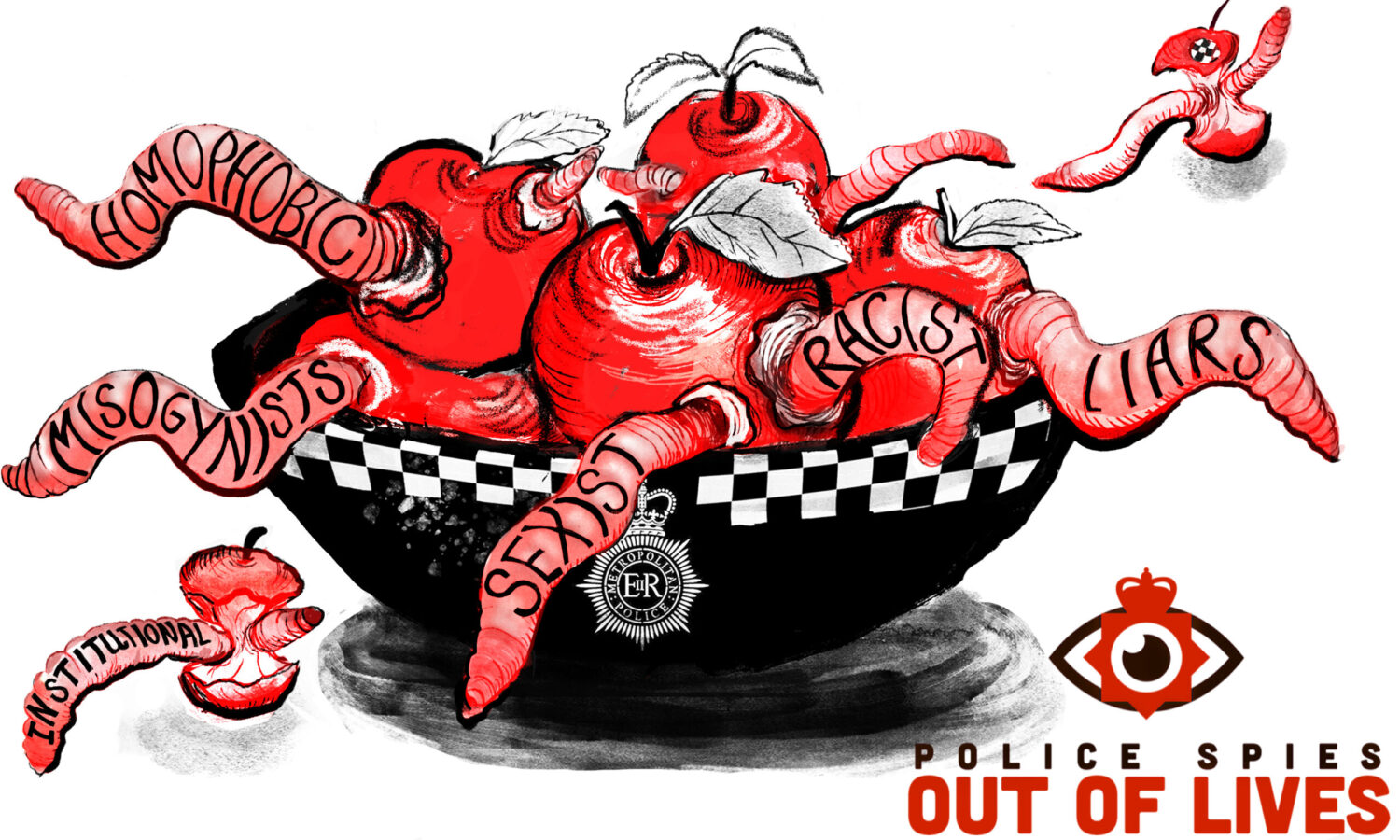Press Release – 8 October 2013
- Claimants fight for human rights cases to be heard in open court, not in secret tribunal
- Last chance to ensure press and public scrutiny of Mark Kennedy’s police commanders over Human Rights Act abuses, amid judge’s “alarming” James Bond reference
On 15 and 16 October 2013 the Appeal Court will hear arguments seeking to overturn a decision which directed that human rights legal actions over undercover police relationships should be heard in a secret court.
When: Tuesday 15 October 2013 and Wednesday 16 October 2013, time tbc
Where: Court of Appeal, Royal Courts of Justice, Strand, London
Contact for comment: Harriet Wistrich of Birnberg Pierce and Partners – 0207 911 0166
The legal claims arise from women being deceived into long-term intimate sexual relationships by undercover officers who were infiltrating protest movements. One relationship lasted six years and all the claimants suffered significant psychological damage as a consequence of the deep intrusions into their private lives.
If the appeal fails, police commanders will escape press and public scrutiny over claims under the Human Rights Act, which prohibits ‘inhumane and degrading treatment’ and protects ‘the right to form relationships without unjustified interference by the state’.
The decision being appealed is that of Justice Tugendhat, issued in January 2013. This granted an application by the Metropolitan Police to send the Human Rights Act claims to a secret court – the Investigatory Powers Tribunal (IPT). The Met’s legal team had argued that that parliament had intended all cases involving complaints about undercover police to be heard in the IPT, but the claimants had disputed this, arguing that the deep intrusions of intimate sexual relationships fell well outside what Parliament had been legislating for.
IPT hearings take place in secret, with no right to see the evidence or cross-examine witnesses. Judgements given by the IPT do not provide any explanation for the decision made and there is no right of appeal. Survivors of the police violations, and their counsel, would be denied any opportunity to participate in the proceedings.
The claimants submitted that since the legislation made no reference to undercover officers having intimate sexual relationships with those they were spying on, such invasive conduct had not been contemplated or authorised by parliament. As such, the claims did not fall under the remit of the IPT. In rejecting this argument Justice Tugendhat bizarrely referred to James Bond having relationships with women as justification for assuming that parliament had contemplated such conduct taking place.
Following Tugendhat’s original decision, Harriet Wistrich of Birnberg Pierce said “To take legal arguments from extreme fiction is alarming. James Bond committed a range of extreme unlawful acts, such as extra judicial killing, that Parliament would also have been aware of but did not need to legislate for”.
NOTES:
a) Two groups of claimants are involved in this appeal. One group (represented by Birnberg Pierce & partners) are taking legal action against the Metropolitan Police and the Association of Chief Police Officers (ACPO) over Mark Kennedy’s deployment, while the other group (represented by Tuckers) are taking legal action against the Metropolitan Police and South Wales Police over Marco Jacobs’ deployment.
b) The three women taking legal action over the actions of Mark Kennedy are part of a wider legal action involving 8 women who unknowingly had relationships with undercover police infiltrating political movements during a period spanning from 1987 to 2011. The full case highlights that the relationships were not caused by ‘rogue officers’ but were part of a pattern of institutionally sexist police attitudes and practices.
Further detail available via the following links….
Appeal against secret court – 15 & 16 October 2013

